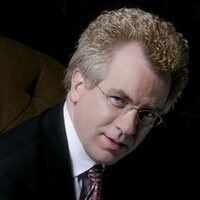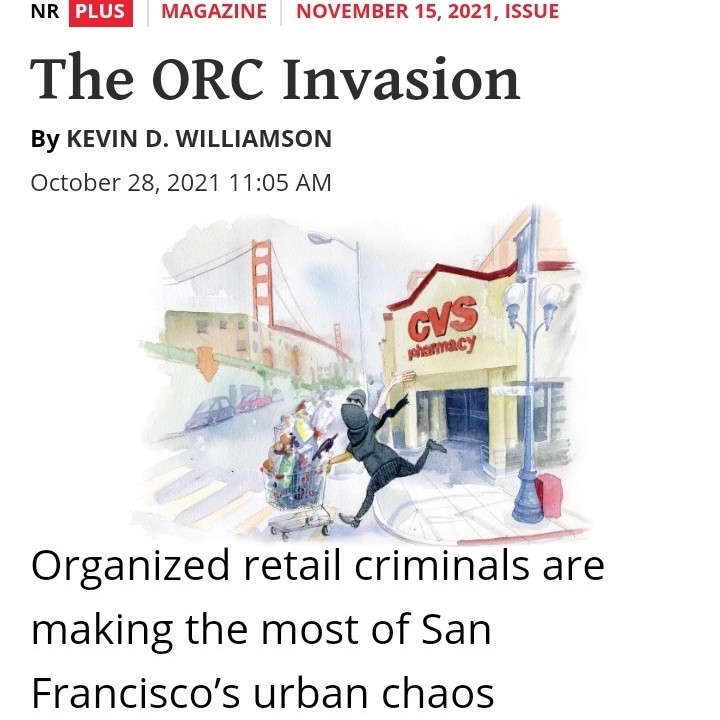Welcome To Proverbs Club.
Free Yourself From Your Security Pledge.
Proverbs 6:5 (NIV).
5) Free yourself,
like a gazelle from the hand of the hunter,
like a bird from the snare of the fowler.
Proverbs Club Commentary.
Fulfill your pledge ASAP to neighbor or stranger.
https://pc1.tiny.us/mw5dzuvy
#free #yourself #gazelle #hand #hunter #bird #snare #fowler
People
Circles
Posts
https://krisannehall.com/index.php/resources/articles/534-flag-burning-and-free-speech
———
“Become a little less indoctrinated and a little more educated…
The pledge is un-American and unpatriotic and goes against the founding principles of the founding fathers and the Constitution they fought so hard to bring us.
The Pledge of Allegiance was written in the 1890s by a defrocked Boston minister named Bellamy, who had been thrown out of his church for preaching socialist doctrine.
He wrote it in order to indoctrinate school children with the idea that the Union was "indivisible" and that secession had been wrong. The phrase "under God" wasn't added until the 1950s. Originally, children were taught to recite it with their hands raised in the same sort of salute with which they saluted Hitler in Germany, but during WW II, they changed it to holding the hand over the heart.
As a child, I figured out there was something wrong about the "indivisible" part since I knew my ancestors had fought for their freedom from the Union, so I always left out that part. Since I learned more about who wrote it and why, I've never said it.” - Brandon Fowler
Liveprayer.com Psalm 91!!!
He that dwelleth in the secret place of the most High shall abide under the shadow of the Almighty. I will say of the Lord, He is my refuge and my fortress: my God; in him will I trust. Surely he shall deliver thee from the snare of the fowler, and from the noisome pestilence. He shall cover thee with his feathers, and under his wings shalt thou trust: his truth shall be thy shield and buckler. Thou shalt not be afraid for the terror by night; nor for the arrow that flieth by day; Nor for the pestilence that walketh in darkness; nor for the destruction that wasteth at noonday. A thousand shall fall at thy side, and ten thousand at thy right hand; but it shall not come nigh thee. Only with thine eyes shalt thou behold and see the reward of the wicked. Because thou hast made the Lord, which is my refuge, even the most High, thy habitation; There shall no evil befall thee, neither shall any plague come nigh thy dwelling. For he shall give his angels charge over thee, to keep thee in all thy ways. They shall bear thee up in their hands, lest thou dash thy foot against a stone. Thou shalt tread upon the lion and adder: the young lion and the dragon shalt thou trample under feet. Because he hath set his love upon me, therefore will I deliver him: I will set him on high, because he hath known my name. He shall call upon me, and I will answer him: I will be with him in trouble; I will deliver him, and honor him. With long life will I satisfy him, and show him my salvation.
AMEN!!! Please share this!!!
Videos
Circles
Videos
Posts
Welcome To Proverbs Club.
Free Yourself From Your Security Pledge.
Proverbs 6:5 (NIV).
5) Free yourself,
like a gazelle from the hand of the hunter,
like a bird from the snare of the fowler.
Proverbs Club Commentary.
Fulfill your pledge ASAP to neighbor or stranger.
https://pc1.tiny.us/mw5dzuvy
#free #yourself #gazelle #hand #hunter #bird #snare #fowler
https://krisannehall.com/index.php/resources/articles/534-flag-burning-and-free-speech
———
“Become a little less indoctrinated and a little more educated…
The pledge is un-American and unpatriotic and goes against the founding principles of the founding fathers and the Constitution they fought so hard to bring us.
The Pledge of Allegiance was written in the 1890s by a defrocked Boston minister named Bellamy, who had been thrown out of his church for preaching socialist doctrine.
He wrote it in order to indoctrinate school children with the idea that the Union was "indivisible" and that secession had been wrong. The phrase "under God" wasn't added until the 1950s. Originally, children were taught to recite it with their hands raised in the same sort of salute with which they saluted Hitler in Germany, but during WW II, they changed it to holding the hand over the heart.
As a child, I figured out there was something wrong about the "indivisible" part since I knew my ancestors had fought for their freedom from the Union, so I always left out that part. Since I learned more about who wrote it and why, I've never said it.” - Brandon Fowler
Liveprayer.com Psalm 91!!!
He that dwelleth in the secret place of the most High shall abide under the shadow of the Almighty. I will say of the Lord, He is my refuge and my fortress: my God; in him will I trust. Surely he shall deliver thee from the snare of the fowler, and from the noisome pestilence. He shall cover thee with his feathers, and under his wings shalt thou trust: his truth shall be thy shield and buckler. Thou shalt not be afraid for the terror by night; nor for the arrow that flieth by day; Nor for the pestilence that walketh in darkness; nor for the destruction that wasteth at noonday. A thousand shall fall at thy side, and ten thousand at thy right hand; but it shall not come nigh thee. Only with thine eyes shalt thou behold and see the reward of the wicked. Because thou hast made the Lord, which is my refuge, even the most High, thy habitation; There shall no evil befall thee, neither shall any plague come nigh thy dwelling. For he shall give his angels charge over thee, to keep thee in all thy ways. They shall bear thee up in their hands, lest thou dash thy foot against a stone. Thou shalt tread upon the lion and adder: the young lion and the dragon shalt thou trample under feet. Because he hath set his love upon me, therefore will I deliver him: I will set him on high, because he hath known my name. He shall call upon me, and I will answer him: I will be with him in trouble; I will deliver him, and honor him. With long life will I satisfy him, and show him my salvation.
AMEN!!! Please share this!!!
ORC stands for Organized Retail Crime. It is thriving in San Francisco. Read all about it, and weep.
--------
‘Bro! Bro! Bro! You want an all-meat sandwich?” The guy with the sandwich is exactly what you are picturing when you picture a guy who says “Bro! Bro! Bro!” — baseball cap, vape pen, in the company of two women producing a slightly less civilized cloud of cigarette smoke — and the object of his benevolence is one of San Francisco’s many addled street people, who accepts the sandwich and waits patiently as his new best friend, Lord Chancellor Sammich, magnanimously explains to him the contents, which are mostly, all within hearing range are assured, beef pastrami. “There might be some pickles.” Pickles, bro! “Uh, okay,” says the beneficiary. “Thank you.” The threesome rolls off into the San Francisco night, in a cloud of complexly blended nicotine vapors. “He always does that,” one of the women says to the other. “I’m so proud of him.”
The bum opens up the sandwich and peers inside, like he’s looking for the keys he lost 30 years ago, then throws it on the ground and trundles off, muttering.
Even in thrall to schizophrenia or demons or addiction or whatever madness it is that has him sleeping out of doors, this man can get a sandwich anytime he wants. Beer, too, or wine, and toiletries (though those don’t seem to be a top priority at this point in his career), the latest issue of Harper’s, whatever. All he has to do is walk into a store and take it. When I checked in at my hotel, I got a $50 credit at the hotel shop, but this guy does not need American Express — he has a $950 credit at every store in town, because San Francisco has effectively (though not quite formally) decriminalized theft of that amount or less. And the city has shown itself unable or unwilling to prosecute a lot of shoplifting amounting to much, much more than that. What has developed are parallel crime waves: One is good old San Francisco street-level hippie-dirtbag chaos, and the other is organized crime, with packs of shoplifters working for ringleaders and bosses who move the goods through both physical and online distribution networks that turn tens of millions of dollars in profit. There is more to this scene than what you see on San Francisco’s lunatic sidewalks.
There are more like him on the surrounding blocks, old-fashioned San Francisco vagrants with prophetic beards and shopping carts piled high with such worldly possessions as they possess. Shopping carts are a real issue in this city. For one thing, people steal them, and, more distressingly for the city’s besieged retailers, they use them to steal other merchandise, filling them up with thousands of dollars’ worth of cosmetics or clothing or packaged goods and rolling them out the door to waiting getaway cars — or just squeaking off into the night, with nothing to slow them down except that one inevitable wobbly wheel. The local Safeways have taken to installing ridiculous long poles onto their shopping carts to keep them from being pushed out the door. Safeway shoppers wander around like anarchically disconnected train cars, towering white plastic pantographs reaching for the pale cyan fluorescent lights above them as they navigate between the frozen peas and the seasonal boxes of Count Chocula. It would take a heart of stone not to laugh. Or to howl.
The real howling starts after dark.
But, mostly, the streets of San Francisco are quiet this evening. On Broadway, a few tourists nose around outside the seedy topless bars. A few PBS tote bags in hominid form paw through the inventory at the City Lights Bookstore, and there’s nothing there that they can’t get from Amazon or Barnes & Noble, but they have come to pay their countercultural respects — the shop’s founder, poet Lawrence Ferlinghetti, died in February at the age of 101 — and to sing the old songs and maybe pick up some Kerouac or Kesey for the DWR coffee table back home, Sometimes a Great Notion, maybe, because Paul Newman was so good in the movie. The shop is full of creaky old lefties who gave up proletarian politics for pinot grigio years ago, and they are not here to shoplift — they are here to buy copies of Tao Lin’s Shoplifting from American Apparel, the fictionalized memoir covering “two years in the life of a young, hip writer who is trying to both not be a bad person and find some kind of happiness or something,” as the marketing copy has it. As a young man, Ferlinghetti was shipped off to an expensive private school in New England after being arrested for shoplifting, and the security measures in his store today are gentle but insistent. The signs reading “No Exit” are not advertising the works of Jean-Paul Sartre — they are directing shoppers to the cash register.
So much for the anti-capitalist vanguard. But San Francisco has always been about getting paid. The 1960s, the beautiful people, Flower Power — good money in all that. The gentlemen at City Lights will be happy to sell you a tourist tchotchke ballcap with “Howl” emblazoned over the bill.
Walking through San Francisco, I kept thinking of the words “global capital flows.” And “flow” seems just right: There is a sense that all that big new money just washed over this rickety old city, a rising tide that lifted a hell of a lot of boats but inundated a few others, before the waters of big new global money did what all such waters do and began to recede. There are a lot of Teslas on the streets here, but a lot of U-Hauls, too, and while the Google/Facebook/Andreessen Horowitz party is still going strong in much of the rest of the Bay Area, the city of San Francisco is grim, ravaged by COVID-19 and wretched misgovernance. It is easy to forget that there is a thoroughly ordinary city here underneath all the madness and quaintness and money and glamour and grime. Tesla employs fewer people in the Bay Area than does Sutter Health, and Kaiser Permanente employs three times as many locals as Facebook. Sure, there’s a pretentious vegan café in the airport, but this is a city that needs CVS, Walgreens, and Target.
And those stores are under siege, falling one by one, closing up shop.
The ORCs are here.
First it was the razor blades and the cologne. Those were the first things in the all-night pharmacies and convenience stores to go behind locked cabinet doors. But at this CVS in San Francisco’s financial district, it’s damned near everything: booze, of course, though not all the booze, pistachios, mixed nuts, dental floss, toothpaste, lotion, deodorant, hair-care products, pain medicine, multivitamins — mostly not things that the vagrant and semi-vagrant members of the sandwich-philanthropy-receiving population are looking to scoop up for their own use, though a few hours before I got there one free spirit did apparently walk out with a bottle of white wine, the weather being fine and life being one long picnic.
If you want to buy some toothpaste or a Slim Jim, you have to press a little call button, like you are summoning the attendant on an airplane — and, of course, you’ll have about as much luck. A clerk earning minimum wage can wait out almost any shopper. It depends on whether you want that Benadryl bad enough.
Some of the stats say property crime is actually down in San Francisco, but that is probably a reporting issue, because some store managers have stopped bothering to waste their time filing police complaints. There’s a uniformed security guard here at CVS, but these guards are not allowed to touch thieves, so all they can do is try to reason with them — which, you know, best of luck with that. If they do call the police, the police will take half an hour or more to show up, if they show up at all, which they often don’t. One store clerk says that thieves will sometimes boost a few beers, walk out the door, and stand right there and drink them in front of the store, fearlessly enjoying their afternoon cocktails alfresco. Locals trade videos of thieves filling up their backpacks as security guards speak sternly to them:
“I’m calling the police!”
“Okay, whatever.”
It’s the old asymmetry at work: Enforcing the law on the law-abiding is relatively easy, but enforcing the law on outlaws is hard work. My taxi driver says he thinks it’s stupid that he and his riders are required to be masked at all times even though they are separated by a plastic partition, but he says drivers have been fined and had their licenses threatened for carrying passengers without masks. It’s an easy offense to prosecute, and masking here in this most progressive city is a powerful symbolic and ritualistic issue, a declaration: “We are not red-staters!” even if Elon Musk now is, along with many other Golden State refugees. Arresting shoplifters at Walgreens is a different kind of symbolic issue, and the Powers That Be in San Francisco just won’t do it. During the bloody and fiery summer of 2020, progressives around the country — including some Democratic prosecutors and police leaders — refused to protect retailers from looters and arsonists on the theory that thievery and destruction were moral reparations for racial injustice. As BLM Chicago organizer Ariel Atkins put it: “I don’t care if somebody decides to loot a Gucci or a Macy’s or a Nike store because that makes sure that person eats. That makes sure that person has clothes. That is reparations. Anything they want to take, take it, because these businesses have insurance.” That was not an uncommon sentiment: “Our futures have been looted,” read one placard. “Loot back!”
(And for only $15, you can still buy a poster depicting an overturned police car and a Molotov cocktail with the caption “Lives Over Property” — Visa, Mastercard, American Express, and PayPal all accepted.)
San Francisco has a civic culture that is as schizophrenic as any of its street people: The city is a playground for the private-jet-setters enjoying their Google money and their Facebook money and their Apple money, but CVS and Walgreens — where Uber drivers stop in to buy Red Bull and aspirin — are embassies of Wicked Naughty Capitalism.
The thing is, we are talking about real money — organized-crime money — not chump change from a little freelance pilferage. Operation Proof of Purchase, a multiagency law-enforcement effort organized by CVS, turned up more than $8 million in stolen goods from a single location — there was $1.6 million in stolen razor blades alone. And that $8 million worth of goods was only a tiny fraction of the tens of millions in goods believed to have been boosted by a single Bay Area ORC — that’s “organized retail crime” operation. When police served a warrant at the Concord, Calif., home of suspected ORC ringleader Danny Drago and his wife, Michelle Fowler, they found high-speed bill counters and $85,000 in cash. Bundles of $100 bills were found at the home of an associate. Millions of dollars of goods stolen from Bay Area retailers were recovered from a number of storage and processing facilities — goods that were bound for resale on eBay and Amazon, headed back into the retail market via corrupt distributors, or destined for overseas markets. The scale of the criminal operation is vast, and so is the scale of the law-enforcement response: Operation Proof of Purchase involved the efforts of more than 100 law-enforcement personnel spread from the California Highway Patrol to the San Mateo County Sheriff’s Office, along with the sprawling and presumably expensive private-sector effort led by CVS.
CVS declined to comment on this story. In fact, there was a lot of declining, also including that of the National Retail Federation, which did not accept an interview request. Naturally, businesses are hesitant to talk about ongoing investigations and litigation (retailers are seeking $50 million in damages from the alleged ringleaders after Operation Proof of Purchase).
There also has been political pushback in San Francisco, where the local political bosses have been embarrassed by reports of store closures and reduced hours — Target closes at 6:00 p.m. these days — inconveniencing shoppers and causing some retail workers to see their hours cut or their jobs eliminated entirely. There have been plenty of dumb and dishonest denunciations of “corporate greed” as retailers work to slow down the rate of pillage.
Then there’s the spookiness factor. CVS executives have talked about the role of “intelligence” in these wide-ranging investigations, but they have been less eager to say what that means — e.g., the widespread use of facial-recognition technology. For years, the dogma among anti-shoplifting professionals was that organized crime played only a minor role in retail theft. But that dogma has been challenged by research undertaken by biometric-data firms such as FaceFirst, which found that the majority of shoplifters (at least 60 percent) entered two separate locations of the same chain and a fifth of them entered three or more. Investigators have traced merchandise from those stores with repeat boosters through the black-market distribution chain, showing that these items are being stolen for resale rather than for personal consumption. “Unfortunately for retailers, shoplifters are incredibly loyal to their favorite brands,” FaceFirst CEO Peter Trepp told Loss Prevention Media. “Until now, it’s been nearly impossible to prove beyond anecdotal evidence how pervasive and strategic recidivism is.” That data came from a survey covering December 2017 to May 2018. Nobody thinks shoplifting has become anything other than more prevalent and more organized since then.
Facial recognition is not only being used to study old security footage — it is now being deployed for real-time analysis of customers entering stores. The idea is to spot thieves as soon as they come in, and, especially, to flag the violent ones. “Face recognition makes it possible to stop crimes before they start,” Trepp added in the LPM interview. This raises some pretty obvious red flags for privacy, something that might not be entirely welcome for people wandering into CVS at 1:00 a.m. to buy condoms and Monster energy drinks.
Facial-recognition systems and other biometric technologies are controversial. During the George Floyd riots, it was learned that law enforcement was conducting facial-recognition surveillance. After receiving bitter criticism, Amazon, Microsoft, and IBM stopped selling facial-recognition software to law-enforcement agencies, with Amazon and Microsoft promising to extend the moratorium until Congress enacts comprehensive regulation, which Congress has so far declined to do, while IBM quit the business entirely. (The European Data Privacy Board has called for “a general ban on any use of AI for automated recognition of human features in publicly accessible spaces, such as recognition of faces, gait, fingerprints, DNA, voice, keystrokes and other biometric or behavioural signals,” according to an agency statement.) All around San Francisco, modest shops and restaurants have signs reading “Smile! You’re on Camera!” But there is a world of difference between detectives reviewing security footage and an AI-managed biometric surveillance network that essentially runs a spot background check on everybody who enters a shop.
For the moment, COVID-19 has given professional shoplifters something very valuable: a mandate to wear masks in public. For years, California maintained a prohibition on public mask-wearing, but that law was overturned after a challenge from Iranian expatriates in California who wished to cover their faces while protesting the abuses of the ayatollahs’ regime. (The University of California at Berkeley has a policy prohibiting the wearing of masks by people for the purpose of “intimidation” — unless the masked parties are affiliated with the university.) Now, California maintains only a generally unenforced prohibition on wearing a mask while committing a crime. For comparison, New York State maintains a prohibition on “being masked or in any manner disguised” in public and has sometimes arrested people on those grounds, in some cases at the Occupy Wall Street protests. But the AIs have learned to read signs other than faces — “gait analysis” is another tool in the surveillance toolbox.
Criminals will find it difficult to hide. But in San Francisco, the victims are more interested in protecting their identities than are the criminals, who often are brazen, with no apparent concern for having their faces recorded. Store owners, on the other hand, are terrified, because these often are violent crimes as well as property crimes. An elderly woman operating a small shop in San Francisco’s Chinatown was exasperated by a thief who brazenly stole cellphone accessories and then returned a few hours later to “return” them for cash. She chased him off but a few hours after that he returned again to steal some more. That time, a shopper stopped him. A few hours later, the thief returned once more, but not to steal — he pepper-sprayed the shopkeeper as a warning not to interfere with him again. Others interfering with shoplifters have been beaten, stabbed, and shot. Unless storekeepers are actually murdered, city officials have almost no discernible interest in these cases. There have been few convictions or even prosecutions resulting from them.
So, there’s your super-appealing choice: sci-fi corporate surveillance state or Mogadishu in the Tenderloin.









